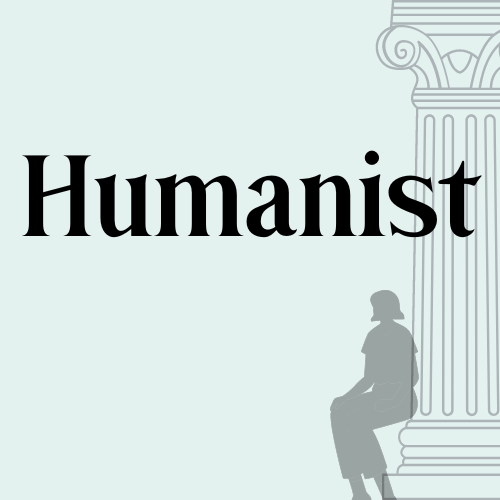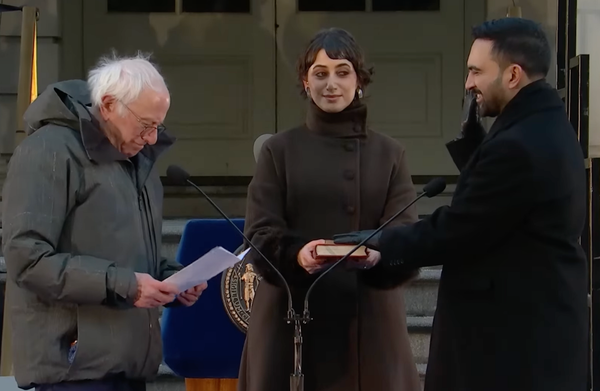Hillary Clinton’s Rhetorical Persona
This article is part of a two-part series using ancient rhetorical theory to analyze Hillary Clinton’s speeches. The other article is…

This article is part of a two-part series using ancient rhetorical theory to analyze Hillary Clinton’s speeches. The other article is Curtis Dozier’s Hillary Clinton and the Rhetoric of Trust.
“I get it that some people just don’t know what to make of me.”
(Hillary Clinton, DNC speech, 28 July 2016)
Hillary Clinton has been the focus of a very harsh, often hostile political spotlight for decades now. And yet Clinton is right that, despite her media overexposure, even some of her supporters don’t quite feel like they knew her. Worse, many are convinced that she is not what she seems, and that what we do see of Clinton is a political fiction.
Clinton’s supporters point to her unique wealth of experience, voting record, and concrete policy plans to defend their candidate—in other words, they point to the content of her speeches. Maybe in an ideal world, content would be all that mattered. But for thousands of years, experts in the art of rhetoric have recognized that people are only receptive to a speaker’s words if they feel that they also have a sense of what kind of person the speaker is.
In his Rhetoric, Aristotle wrote that we can be persuaded by three things: reason (logos), the character of the speaker (ethos), and our own emotions (pathos). He argued that ethos was an essential part of giving an effective, persuasive speech and winning people over:
[There is persuasion] through character whenever the speech is spoken in such a way as to make the speaker worthy of credence; for we believe fair-minded people to a greater extent and more quickly [than we do others] on all subjects in general and completely so in cases where there is not exact knowledge and room for doubt. … character is almost, so to speak, the controlling factor in persuasion. (1.2.4, trans. Kennedy)
We judge a speaker not by the words of a single speech, but as a whole person. We look for trustworthy, smart, engaging people to tell us what to think and what to do. A speaker must convince us that they deserve our respect and credence, especially if they’re seeking a position of leadership. According to Aristotle, once a speaker has won his (always his, for Aristotle) audience over by demonstrating good character, they listen to him sympathetically. They become emotionally invested, not only in what he’s talking about, but in him. In contrast, if they can’t get a clear sense of the whole person, or if they think he’s a bad or dishonest person, they get suspicious and hypercritical.
Cicero also shows us the power of ethos in his published speeches (see James May’s 1988 Trials of Character for a classic treatment). In his dialogue De Oratore, an orator tells his interlocutors that character (mores) can have a greater effect on the outcome of a case than the actual arguments, and that a good speech should outline or “sketch out” the character of the orator (2.182).
How is it possible that, in all of the speeches she’s given, Hillary Clinton hasn’t “sketched out” her character yet?
As she herself said in her DNC speech, in her life as a public servant, the ‘servant’ part has come more naturally to her than the ‘public’ part. Ezra Klein, in an article for Vox, wrote about a mysterious phenomenon: the “gap” in perception of Clinton between those who know her personally and those who only know her public persona. Apparently, face-to-face interaction with Clinton reveals a “brilliant, funny, thoughtful, effective,” and a fundamentally likable and trustworthy leader. (Immediately after her convention speech, Matthew Yglesias wrote another piece for Vox, concluding: “Hillary Clinton is bad at speeches for the exact reasons she’d be a good president.”) In musing on why this hasn’t translated to Clinton’s public persona, Klein speculated that she’s so busy trying incorporate all the concerns she’s heard into every speech that she ends up giving us unshaped laundry lists of political grievances, and gets lost in the mix herself.
Granted, some of this isn’t her fault. We tend to put our trust most easily in people who look like us, and especially in people who look like they’ve got authority. That tendency perpetuates systemic oppression in all kinds of ways. Clinton isn’t your usual presidential candidate; a video montage of presidential portraits shown right before her speech — featuring 43 white men followed by Obama and Clinton — made that point all too eloquently.
But her problem with ethos isn’t just that she’s a woman: say what you want about Sarah Palin and Carly Fiorina, but they did have clear, distinctive characters. While they were criticized heavily, they were not criticized for the insincerity, lying, and opportunistic doublespeak with which Clinton gets tarred. Bill Clinton, the “explainer-in-chief,” is also a great example of the power of ethos: he has an apparently intuitive knack for making any speech sound authentically Bill. What does Hillary sound like?
Annie Karni, writing for Politico, articulated one important reason why Clinton may lack a strong oratorical ethos. Echoing Klein, Karni explains that in the early stages of the campaign, speechwriters battled with Clinton’s “spaghetti-on-the-wall policy approach” (Karni’s words). Clinton wanted details and precision and inclusiveness, her speechwriters wanted slogans and sound bites and streamlining, and each speech tended to be the product of all of those voices. So much for the content — but who was looking out for Clinton’s ethos as an orator, the personal stamp that a speech needs? Perhaps inevitably, the resulting speeches were impersonal, and often delivered without the kind of conviction and authenticity that gives an audience confidence in the speaker.
Sometimes Clinton gets it right. On July 13, shortly after the shootings of Alton Sterling and Philando Castile, Clinton gave a speech at the Old State House in Springfield, Illinois. She began by quoting a speech Abraham Lincoln had given in the same State House in 1858 about the injustices of slavery. Her speech is solemn, measured — almost Lincolnesque. And when she applies Lincoln’s ideas to today and begins to talk about racial injustice in our society, sharing her grief over Sterling and Castile along with the Dallas police officers assassinated within days, it feels real. Her persona comes through when she has something she really wants to say, and particularly when she feels the import of an occasion and rises to meet it.
Clinton also shines through as a presence in two particular modes: in attacks on Donald Trump, and in plays on words. Especially in wordplay attacking Trump. That is her personal comfort zone, and it shows. At a rally with Obama early in July, her glee was palpable when she declared, “Donald Trump can accuse me of playing the woman card all he wants, but if fighting for equal pay, and affordable childcare, and paid family leave is playing the woman card, then — DEAL ME IN!” While she struggles to deliver conventional political slogans convincingly, here she delivered the line with gusto, and — as Aristotle leads us to expect — the audience responded viscerally, cheering “HILLARY! HILLARY!”
Most importantly, Clinton had a breakthrough moment of sorts in that DNC speech. Tim Kaine told us the night before that if we really want to “know about the character” of a candidate, we should look at the causes they gravitated to before they entered public life, and what they’ve stuck with despite the demands of politics. For Clinton, according to a major theme at the DNC, that was kids. (The feminist voice in my head wondered whether our first female nominee from a major party had to identify so strongly as a mother to be liked and trusted.) Kaine was right that we build our sense of a persona over time, accumulating data points to perceive a pattern, and Clinton has a long history of working on behalf of children. As most of the DNC speakers (ending, naturally, with Clinton’s own daughter) had already reminded us, Clinton’s advocacy for healthcare for children has become a lifelong personal crusade.
Clinton emphasized the theme of motherhood throughout her speech, from her reflections on her relationships with her mother, her daughter, and her grandchildren to her allusions to her history in politics. She used this theme as an opportunity to defend her tendency to sweat the small stuff, arguing memorably that “it’s not a detail if it’s your kid or your family.” In this speech, we got a sense of why Clinton was there. She was there to bring her policy experience to bear to fight for children, as the first female nominee of a major party. Karni writes that before the speech, Clinton had told her speechwriters that she needed to go “bigger,” to say something to mark the historic importance of her nomination, something worthy of the occasion. She barely used a first person singular pronoun, focusing instead on collective action and the common good, and yet her ethos as a speaker had rarely come through so clearly. It was all of a piece — her history, her words, her emotional investment.
If her speechwriters can take a page from Aristotle’s and Cicero’s books, give up the old slogans, and focus as much attention on ethos as they do on logos, she may become a better orator than anyone expects. They’ll have to convince her to go along with it — but throw in some wordplay and a few Trump digs, and I think she’ll get on board.

Joanna Kenty is a post-doctoral fellow in the Department of Classics, Humanities, and Italian Studies at the University of New Hampshire.






